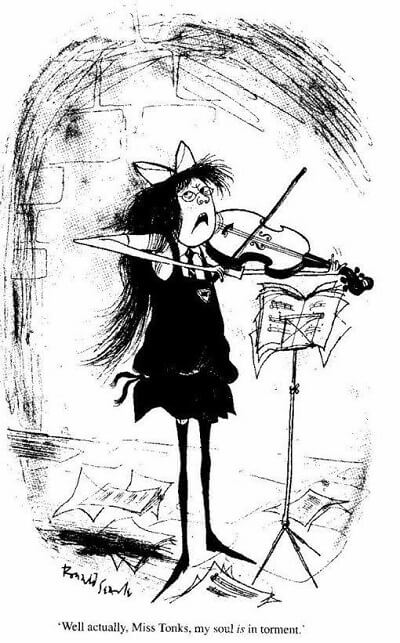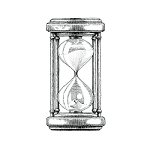Private Tutors in London & Online
Expert School’s Advice
Face to Face Consultations – COVID Safe
Bursaries & Scholarships
Private schooling these days is out of the financial reach of most people – particularly those with more than one child to consider. Fees have rocketed in relation to salaries and inflation, and families from the professional and upper classes, whose children would have had traditionally had a public school education, are now looking for cheaper alternatives. In the past, particularly bright children were able to have their schooling paid for by the Direct Grant system and then by Assisted Places but both schemes are now defunct. So where can you go for help now?
Many private schools are embarking on campaigns to raise more funds for means-tested bursaries. These days, almost one-third of pupils educated in the private sector receive some form of financial assistance in the form of a scholarship or bursary.
Good schools want able children – whether they are academic superstars, winners on the sports fields or masters of art, music or drama. They raise schools’ results, add silverware to their trophy cabinets and lustre to their reputation. So many schools offer financial assistance to attract the brightest and most talented – and most private schools are run as charitable foundations with obligations to extend their provision to a limited number of children who merit places but whose parents cannot afford the fees.

AS
FEATURED
IN









Scholarships: how they work
Almost all independent secondary schools offer scholarships in order to attract talented pupils. These are often highly competitive but are usually worth more in kudos than cash. The financial benefit of a scholarship is rarely worth more than 10 percent of fees these days and often as little as £100 in vouchers for art supplies for an art scholar. However, scholars often have special privileges, extra coaching or tuition in their chosen discipline and additional trips, tours and mentoring for the duration of their time at the school.
More generous scholarship funds do exist at the most ancient of public schools such as Eton, Harrow, Winchester et al as they have had centuries in which to accrue legacies from grateful old boys and philanthropists to boost the scholarship pot. Scholarships at such schools are often effectively bursaries for very able boys from state schools whose families do not have the means to cover the fees. Even a King’s Scholarship from Eton is worth just 10 percent of fees, although such scholarships can also be topped up with means tested bursaries. Many schools do, however, also have awards for academic prowess, sporting or artistic skills – or a combination of all of these. Newer foundations have less money and less generous scholarships or bursaries and a scholarship may be a matter of your name on a board and a year’s supply of football socks.
Customer Reviews

Absolute godsend!


Prep school scholarships: what’s available?
Scholarships are few and far between at prep school level, although choir schools are the obvious exception to this. They rarely cover full fees, however, and choir scholars have to work incredibly hard for them (do ask what happens when their voices break!), although they can serve as a springboard into a music scholarship at a top public school. Some prep schools offer scholarships and exhibitions (the name for a minor scholarship) for pupils entering year 7 when they have had a chance to demonstrably develop their skills – these are often given to internal candidates who have consistently proved their mettle over previous years. Others give bursaries to children joining from state schools in year 6 or 7 to work for common entrance.
Internal scholarships
If you’ve already got your foot in the door and are swallowing the termly fee bill through gritted teeth, keep your eyes open for internal scholarship or bursary opportunities which occur at various stages, mainly sixth form.
Bursaries
Bursaries enable bright and talented children of less well-off families – those who would otherwise not be able to afford the fees – to attend private school. For the brightest of the bright, bursaries can be worth up to 100 percent of fees – and in some cases, if they cover trips and uniform, even more. As well as being based on the child’s ability, they are means tested which means that each year the recipient family’s financial circumstances are examined by the school bursar.
The family income threshold for some help can sometimes be surprisingly high, so it’s definitely worth investigating, although income is not the only criterion. Schools may well look at the value of your assets and assess other outgoings such as holidays. They also take into consideration other financial commitments such as the number of children or other dependents. Each school has its own rules and ways of making their decisions and some are more transparent about these than others. It can never hurt to enquire about bursarial assistance at any school that interests you.
Can schools award scholarships and bursaries together?
It is possible to hold both a scholarship and a bursary – and many able children do. This means that you gain your place at the school on the strength of your abilities and the school makes it possible for you to come by giving you a bursary.
How do you get a scholarship or bursary?
The most important thing is to be realistic about your child and your financial circumstances. If your child is doing nicely, about average in his state primary, enjoying his sport or music but not exactly a Marcus Rashford or a Sheku Kanneh-Mason, then he is probably not destined for a scholarship. If you have a semi in London and a cottage in Dorset, keep a boat and a string of horses and ski in Wengen every winter, you are unlikely to be taken seriously as a candidate for a bursary – however bright your child. However, if your child was reading at 3, knew his tables at 4 and devoured science books whole at 7, then you may have a potential scholar on your hands.

So, if your child is able, if you are not rich and you want an independent education for her, then inform yourself. Find out (we can help you) which schools in your area offer fee assistance and what the criteria are. Remember that schools make their own rules and set their own timetables.
- Be on time and be organised. If your child gets the offer of a place and you then decide to ask about bursaries, it may well be too late.
- Be scrupulously honest. Answer all the questions – whether about your child’s tutoring (if any), whether the school is your first choice, your income etc – without reserve.
- Don’t pressure your child. Your child wants to succeed. He wants to please you and would love to get a place at Brainbox Towers, but no child does well at exams or interviews if they are anxious. Always approach it as a ‘let’s give it a try’ exercise.
- No school owes you a bursary. You may think your child is brilliant and a constant delight. You may know he would flourish at this or that school or that the school would be thrilled to have her if they knew how wonderful she is. But arguing with the school, nagging the school or threatening the school will merely make them determined not to take your child. No school willingly takes on a child with an annoying parent. Do not lose your sense of proportion.






